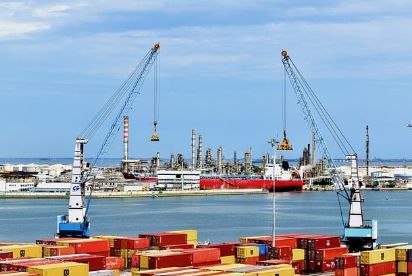What are Export Quotas and How Do They Impact International Trade?
Export quotas are government-imposed limits on the quantity or value of certain goods that can be exported out of a country over a specified period of time. These quotas are used as a tool to control the volume of goods leaving the country, ensuring that domestic markets have adequate supplies and stabilizing national reserves of critical resources. This article delves into the rationale behind export quotas, their effects on international trade, and the implications for global markets.

Understanding Export Quotas
Export quotas restrict the amount of certain goods a country allows to be exported. The government sets these limits based on various factors, including economic conditions, political reasons, and environmental concerns. Export quotas can apply to a wide range of goods, but are most commonly associated with natural resources, agricultural products, and sometimes high-tech goods.
Types of Export Quotas
1. Absolute Quotas: These limit the quantity of goods that can be exported to a fixed amount during a specific period.
2. Tariff-rate Quotas: Allow a certain quantity of goods to be exported at a lower tariff rate, after which a higher tariff is applicable.
Purposes of Export Quotas
• Resource Conservation: To prevent depletion of natural resources or important commodities.
• Price Stabilization: To stabilize domestic prices by controlling the supply levels and preventing excess availability on international markets.
• Protecting Domestic Industries: To ensure that industries critical to the national economy do not face shortages of raw materials and key inputs.
• Political and Economic Influences: To exert economic or political influence internationally, or to comply with international agreements.
Impact of Export Quotas on International Trade
• Market Supply and Prices: Export quotas can lead to shortages in global markets, increasing prices and causing volatility.
• Trade Relations: Can strain international relations, particularly if countries dependent on certain exports view quotas as unfair trade barriers.
• Competitiveness: Domestic producers may become less competitive internationally if dependent on artificially maintained prices or supplies.
• Compliance with International Norms: Can lead to disputes in international trade bodies such as the World Trade Organization (WTO), especially if quotas are seen as unjustifiable trade restrictions.
Managing Export Quotas in International Business
• Strategic Planning: Businesses must understand and anticipate the potential impact of export quotas on supply chains and pricing strategies.
• Diversification: Diversifying supply sources to reduce dependency on products subject to export quotas.
• Lobbying and Advocacy: Engaging in lobbying efforts to influence policy regarding the imposition or adjustment of quotas.
Challenges Associated with Export Quotas
• Economic Distortions: Quotas can distort market operations, leading to inefficiencies and encouraging black markets or illegal trading.
• Retaliation: Countries affected by another nation’s export quotas might retaliate with their own trade barriers, escalating into trade wars.
• Monitoring and Enforcement: Ensuring compliance with export quotas requires significant administrative effort and can be costly.
Conclusion
Export quotas are a double-edged sword in international trade policy. While they can protect national interests and stabilize domestic markets, they can also disrupt global supply chains and international trade relations. For businesses engaged in international trade, understanding the implications of export quotas is crucial for strategic planning and risk management. As global markets continue to integrate and trade agreements evolve, the use of export quotas will remain a critical, albeit controversial, tool in global trade management.
Related articles

 WeChat of CBiBank
WeChat of CBiBank